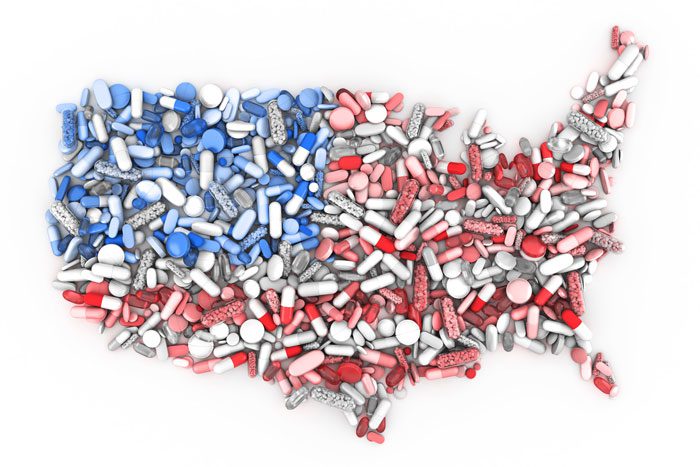By Sandy Baker
For those living with alcohol or drug addiction, realizing you are not alone can be valuable.
Research continues to show that more people than ever are walking this path, but there’s always hope for recovery.
Drug Overdose Deaths by the Numbers
A report from the Centers for Disease Control and Prevention provides some statistics that can be very worrisome. According to the report, nearly 600,000 people suffered from accidental drug poisoning from the period of 1979 through 2016.
In 2016 alone, 63,600 people died from drug overdoses, as reported by Science. Opioids were the top cause of overdose deaths in the United States. Per 100,000 people, 5.4% died as a result of an overdose.
Another source, this time from the National Institute on Drug Abuse, shows an estimated 72,000 people died of an overdose in 2017 in the United States. Again, the sharpest increase in drug-related deaths was from the use of opioids including fentanyl. This is a two-fold increase over the last 10 years.
Closer to home, the numbers in Texas are just as worrisome. In 2016, the state saw 1,375 opioid-related overdoses occur. This is a rate of 4.9 per 100,000 people, according to the National Institute on Drug Abuse. In 2015, providers in Texas wrote 15.9 million opioid prescriptions.
Signs of an Overdose
An overdose occurs when a person consumes, injects, or otherwise takes in a higher dose of a drug than their body can tolerate and process fast enough. In the case of opioids, the drugs enter the system and slow the body’s respiration rate and heart beat significantly. This causes a scenario in which their heart may stop and breathing stops or is insufficient to support the body’s needs.
Many people using drugs have no idea they are close to overdosing. They are heavily under the influence of the drug, unaware that they need medical help.
It is not always easy to recognize the symptoms of an overdose. This is especially true when you don’t know the individual has used any type of drug. Common symptoms and signs of a drug overdose include:
- Passing out
- Breathing erratically
- A fast or slowed pulse
- An increase or significant decrease in body temperature
- Seizures
- Headaches
- Chest pain
- Delirium
- Anxiety that seems to become agitation.
How to Help an Overdose Victim
If you believe someone is overdosing, don’t wait. Call 911 immediately. Stay with the person as long as possible to ensure they continue to breathe.
If the individual passes out, place them on their side. This can limit vomit-induced choking. Do not give the individual anything to eat or drink.
Follow all instructions provided by emergency responders. Most often, your job is simply to communicate with emergency workers and ensure the individual is as safe as possible until help arrives.
Efforts to Reduce Overdose Deaths Nationwide
Researchers continue to work on addressing the underlying causes of overdoses. Overprescribing of opioids is one key area of concern. Others include poor control over products and limited access to prevention and education on drug risks.
The Centers for Disease Control and Prevention states it is continuing to work with federal agencies to make improvements. Key areas here include improving prevention efforts as well as planning recovery services. It also means improving pain control medications that may alleviate the need for the use of opioids.
To help minimize the number of deaths occurring, the agency is also working to provide better access to overdose reversing drugs such as Narcan. These medications can work to stop an overdose from happening in some situations.
Seeking Addiction Treatment for Your Loved One
If you have a loved one who may be at risk of an overdose, it is critically important to discuss treatment options with him or her. Drug and alcohol treatment centers can provide a lifeline to individuals who are struggling.
People who have an addiction cannot simply stop taking a drug they are using. They need a supportive environment that allows them to detox and rebuild from there.








